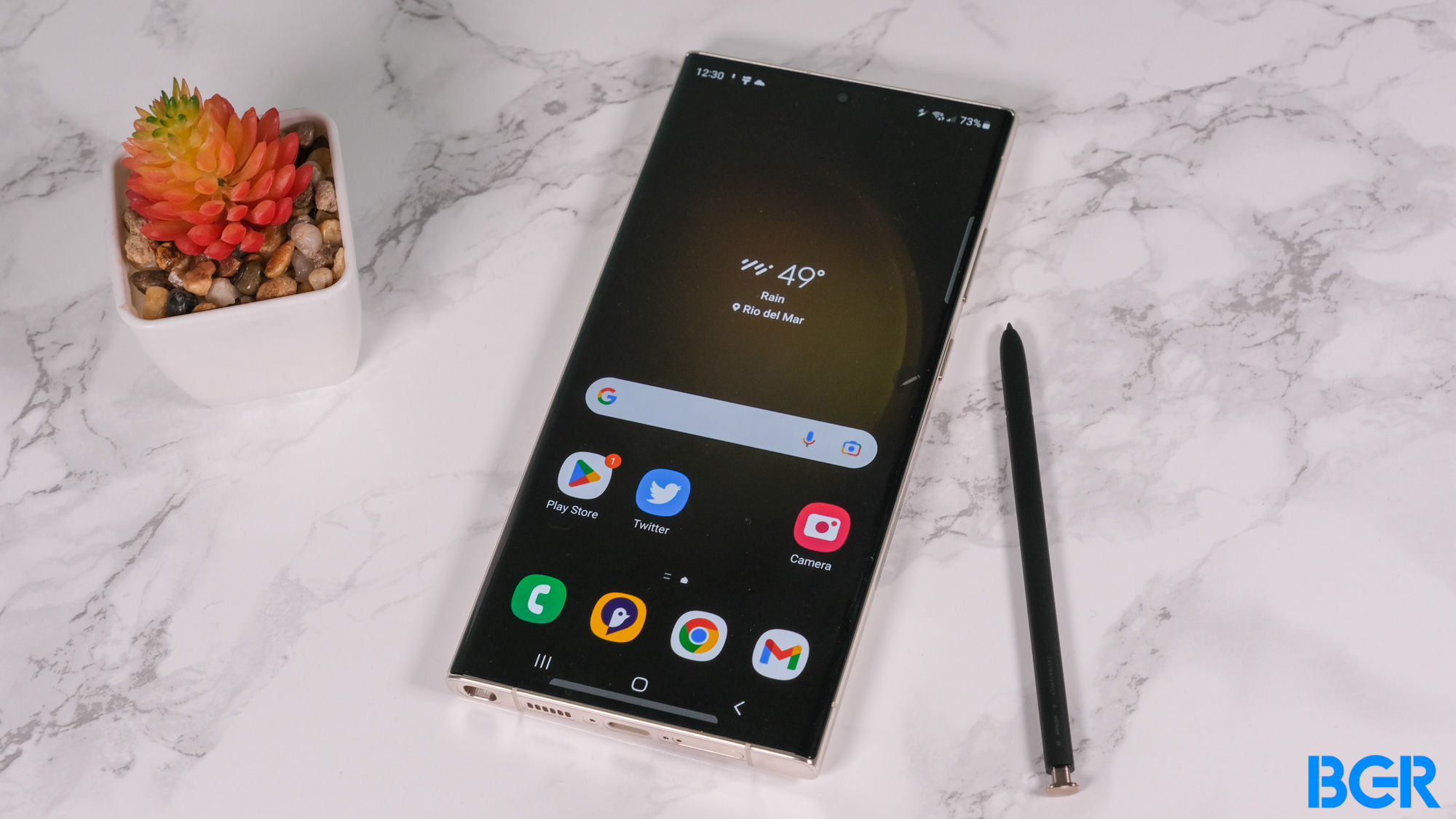Several rumors said in the past few weeks that the Galaxy S24 will be Samsung’s first device to feature on-device generative AI software similar to ChatGPT. Samsung went ahead and confirmed that it’s working on an “AI phone” during its most recent earnings call, without disclosing the ChatGPT rival’s name or revealing which phone will get AI. Then, a report said that Samsung might charge Galaxy S24 buyers a fee to access on-device generative AI features.
That last rumor didn’t make much sense, as I explained. Charging for on-device AI features on the Galaxy S24 might not work in Samsung’s favor. What’s more likely is for Samsung to offer basic ChatGPT-like features for free. More complex features might then require a subscription. It would all hinge on what language model Samsung uses for its AI phones.
It turns out we don’t need to wait until January to learn that answer. Samsung hosted an AI Forum event in Korea where it introduced its proprietary ChatGPT alternative. It’s called Samsung Gauss, and it’ll probably power the generative AI experience on the Galaxy S24.
What is Samsung Gauss?
Generative AI has been the talk of the town this year, with every major tech company working on its own ChatGPT-like product. Samsung had a bit of an issue with ChatGPT, forcing employees to avoid OpenAI’s chatbot as it discovered some of them had fed the competing chatbot proprietary information. Samsung was just one of the companies that advised against ChatGPT use in the office.
Fast-forward to late 2023, and Samsung is using Gauss internally. Samsung Gauss comes from Samsung Research, and the generative AI promises powers similar to what’s available from ChatGPT and other similar programs.
Why Gauss? Well, it doesn’t matter what you call a generative AI product. We have Bing Chat and Copilot from Microsoft. Then there’s Bard and SGE from Google. Anthropic has Claude, and Apple’s ChatGPT rival is informally referred to as Apple GPT.

Samsung chose the name of a well-known scientist for its generative AI:
In the final session, the participants delved into Samsung Gauss and the On-Device AI technologies using this model. The model consists of Samsung Gauss Language, Samsung Gauss Code and Samsung Gauss Image, and is named after Carl Friedrich Gauss, the legendary mathematician who established normal distribution theory, the backbone of machine learning and AI. Furthermore, the name reflects Samsung’s ultimate vision for the models, which is to draw from all the phenomena and knowledge in the world in order to harness the power of AI to improve the lives of consumers everywhere.
That final phrase also teases how Samsung might be training Gauss. The generative AI might gobble up all possible information from the public internet. Then again, so do other models.
On that note, it’ll be interesting to see how Gauss protects your privacy and security. Samsung has briefly addressed the matter in the press announcement:
Samsung is not only developing AI technologies, but also moving forward with various activities that ensure safe AI usage. Through the AI Red Team, Samsung continues to strengthen the ability to proactively eliminate and monitor security and privacy issues that may arise in the entire process — ranging from data collection to AI model development, service deployment and AI-generated results — all with the principles of AI ethics in mind.
Everyone else in the business is developing ethical AI. Or they say they do.

What can Gauss do?
Samsung Gauss is currently used internally at Samsung to improve productivity. The generative AI product has three features: Gauss Language, Gauss Code (with code.i), and Gauss Image. Here’s how Samsung describes them:
Samsung Gauss Language, a generative language model, enhances work efficiency by facilitating tasks such as composing emails, summarizing documents and translating content. It can also enhance the consumer experience by enabling smarter device control when integrated into products.
Samsung Gauss Code and a coding assistant (code.i) — which operates based on it — are optimized for in-house software development, allowing developers to code easily and quickly. It also supports functions such as code description and test case generation through an interactive interface.
In addition, Samsung Gauss Image is a generative image model that can easily generate and edit creative images, including style changes and additions, while also converting low-resolution images to high-resolution.
It’s unclear which ones will rely on the on-device capabilities of future devices and which ones will require sending data to Samsung’s servers. I suspect it’ll be a bit of both worlds, depending on the complexity of queries.
Will Galaxy S24 phones run Gauss?
Samsung is yet to confirm that the Galaxy S24 will come with Guass built-in. But given the timing of Gauss’s arrival, I’d say Samsung would be a fool to waste the opportunity of shipping its generative AI software with the next flagship. Furthermore, The Korea Times also notes that Gauss should be incorporated in next year’s Galaxy S24 phones.
The report notes that Samsung will gradually incorporate generative AI features into products, with industry experts expecting it to start with the Galaxy S24 series.








